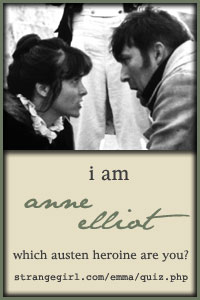_-_Foto_Giovanni_Dall'Orto,_30-Mar-2008.jpg)
We saw Tosca on Saturday morning, live from the Met in forty-two countries around the world—technology at its benignest and most impressive; something my father back in Sandpoint would have been thrilled by. I was reminded of the power of Puccini's music, and of the iconic image of the Castel Sant’Angelo, the famous fortress/prison/ mausoleum high above the Tiber, on its top the angel with its downthrust sword and lilting wing.
One afternoon or evening, years ago, I almost didn’t come out of Tosca. I was aware of being literally lost in the music, willing my loss, absorbed too utterly in what was possible no place but there; disbelief not just suspended but become belief in the salvation of the fine, alternate world. I wanted more than anything to stay where the collective trance held me—in that very Italian otherworldly realm, the swell of the Te Deum in the peopled Roman church, the vision of beauty and transformed pain that kept me from myself until the lights came on, the curtain down, removed from my failures to cope with the reality outside. In the operahouse, I was safe. In Tosca’s church, I was far better than I was anywhere else. If I could have chosen, just then, I would not have emerged. My soul was drawn fatally from me.
I don't know if I found the Willa Cather story before that or after—A Wagner Matinée, in which the narrator’s aunt, a music teacher at the Boston Conservatory before her marriage and move to a remote farm on the Nebraska frontier, is brought to face her lost life, in another operahouse. Watching the unmoving woman next to him at the performance he has given her as an imagined treat, the nephew observes “I could feel how all these details sank into her soul . . .” During the Tannhäuser overture he feels “an overwhelming sense of the waste and wear we are so powerless to combat.”
And then, as Siegfried’s funeral march begins,
“The deluge of sound poured on and on; I never knew what she found in the shining current of it; I never knew how far it bore her . . . From the trembling of her face I could well believe that before the last number she had been carried out where the myriad graves are, into the gray, nameless burying grounds of the sea; or into some world of death vaster yet, where, from the beginning of the world, hope has lain down with hope and dream with dream and renouncing, slept.
“The concert was over; the people filed out of the hall chattering and laughing, glad to relax and find the living level again, but my kinswoman made no effort to rise. The harpist slipped the green felt cover over his instrument; the flute-players shook the water from their mouthpieces; the men of the orchestra went out one by one, leaving the stage to the chairs and music stands, empty as a winter cornfield.
“I spoke to my aunt. She burst into tears and sobbed pleadingly. ‘I don’t want to go, Clark, I don’t want to go!’
“I understood. For her, just outside the concert hall, lay the black pond with the cattle-tracked bluffs; the tall, unpainted house, with weather-curled boards, naked as a tower; the crook-backed ash seedlings where the dishcloths hung to dry; the gaunt, moulting turkeys picking up refuse about the kitchen door.”
(Willa Cather, Youth and the Bright Medusa, Vintage Books, 1975)
image: The bronze statue of Archangel Michael, standing on top of the castel Sant'Angelo, Rome. Foto di Giovanni Dall'Orto



















No comments:
Post a Comment